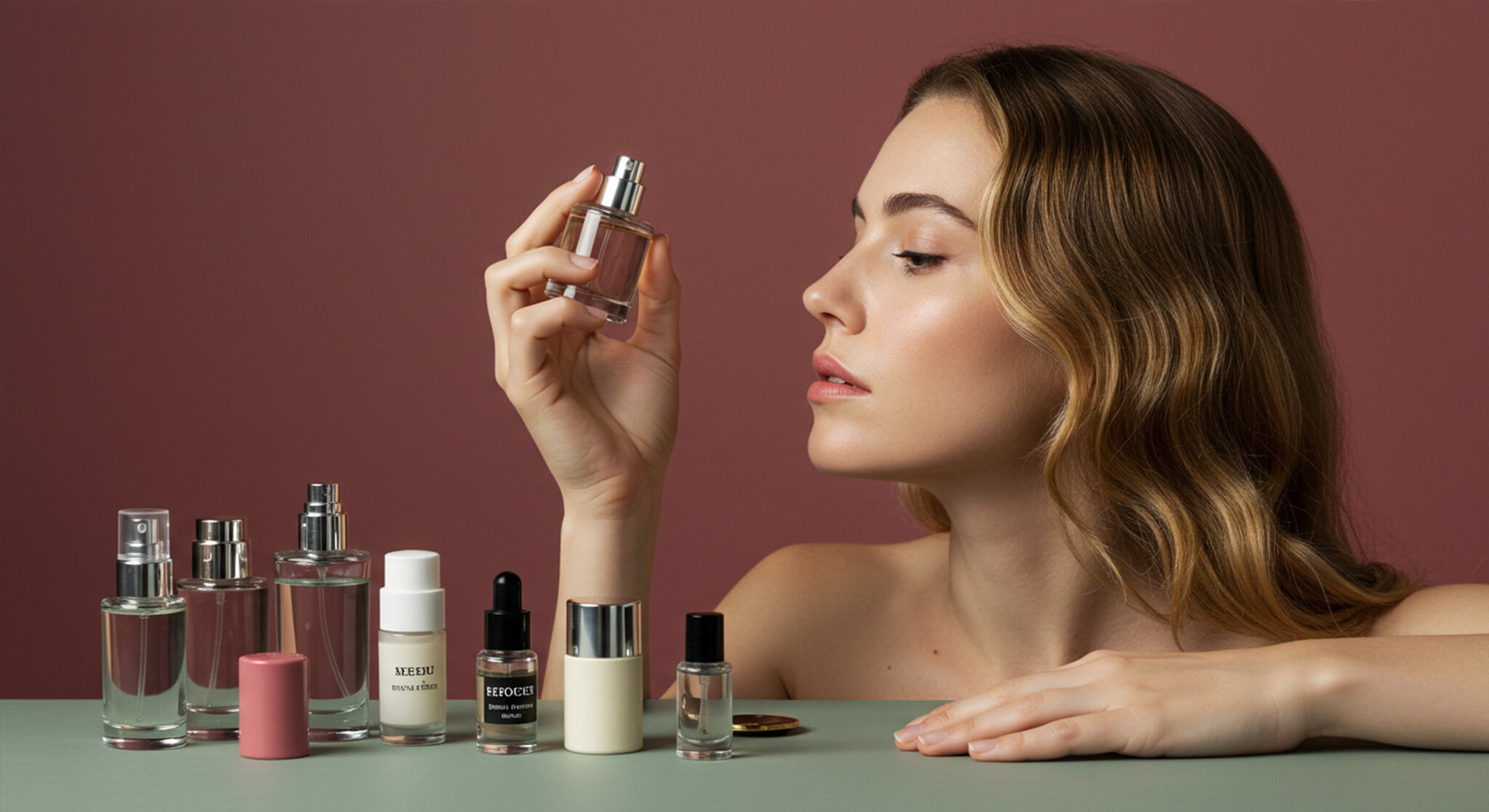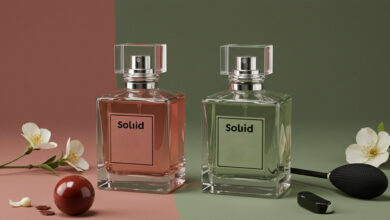How to Test Perfume: The 5-Step Method to Avoid Nose Blindness
Table of contents
The Perfume Counter Dilemma: Sensory Overload
You walk into a perfume hall, a wonderland of beautiful bottles and endless possibilities. You’re excited to explore, compare, and discover your next signature scent. You test one, then another, but by the third or fourth fragrance, it happens: everything starts to smell the same. Your nose is tired, you can’t distinguish one note from another, and you can no longer trust your own perceptions.
This is “olfactory fatigue,” or “nose blindness,” and it’s the number one reason for perfume testing frustration and, ultimately, costly purchasing mistakes.
But there is a strategic method that professional perfumers and fragrance experts use to sample multiple scents while keeping their sense of smell sharp. And a hint: it doesn’t involve sniffing coffee beans. It’s a systematic approach, and we’re going to teach it to you.
The Science in Brief: Why Your Nose “Goes Blind”
Olfactory fatigue, also known as nose blindness, is a real form of sensory adaptation. When your highly sensitive scent receptors are overexposed to a constant, complex set of fragrance molecules, they temporarily stop sending those signals to your brain. This is a brilliant survival mechanism to prevent your brain from being overwhelmed, allowing it to remain alert for new scents. It is, however, completely unhelpful when you’re trying to choose between a jasmine and a tuberose.
The Professional’s 5-Step Method for Smart Sampling
This methodical approach will transform your chaotic sniffing sessions into a mindful and effective process.
Step 1: Arrive with a “Blank Canvas”
Before you leave the house for your perfume testing journey, prepare your skin. Shower with unscented soap or body wash, and do not apply any scented lotion, deodorant, or your usual perfume. You want your skin to be a completely neutral base for the fragrances you’re about to test.
Step 2: Use Paper Blotters for the First Round
Your skin is your most valuable testing real estate—don’t waste it on scents you don’t love. Always start your exploration with paper blotters. Spray each fragrance you’re curious about on a separate strip and, crucially, label each one with a pen. Sniff them briefly to get a first impression and create a “yes” and a “no” pile. Your goal is to narrow your selection down to your top 2-4 favorites.
Step 3: The Real “Palate Cleanser” (Hint: It’s Not Coffee Beans)
You’ve seen the little bowls of coffee beans on perfume counters for decades. The truth? They don’t really “cleanse” your palate; they just overwhelm your tired nose with another strong, complex smell.
- The Technique: The single most effective way to reset your olfactory receptors is to smell something neutral and completely familiar: your own unscented skin. After sniffing a few blotters, simply bury your nose in the crook of your elbow (where you haven’t sprayed anything) and inhale deeply. The familiar scent of you is the perfect neutral baseline that allows your olfactory receptors to reset for the next fragrance.
Step 4: Strategically “Zone” Your Skin
Now it’s time for the skin test. Take your top 2-4 finalists and apply them to different “zones” on your arms, keeping them far away from each other to prevent the scents from mingling.
- Recommended Zones: 1. Left Wrist, 2. Right Wrist, 3. Left Inner Elbow, 4. Right Inner Elbow.
Step 5: Leave the Store
This is the most critical step to avoid a costly mistake. Never, ever buy a perfume in the first five minutes after spraying it. The air in a perfume hall is saturated with a cocktail of different scents, which will confuse your perception. You must go outside into the fresh air and let the fragrances live, breathe, and evolve on your skin for several hours. This allows you to experience the true heart and base notes, which is what you’ll actually be smelling all day. The scent you still love after four hours is your true winner.
The Verdict: A Method for Mindful Discovery
Testing multiple perfumes without getting overwhelmed isn’t about having a “better” nose; it’s about having a better method.
By using paper first, resetting your palate correctly with your own skin, zoning your application, and giving the fragrances time to tell their full story, you transform a chaotic sniffing session into a mindful and effective process. It’s the professional approach that guarantees you’ll avoid buyer’s remorse and find a fragrance you will truly love and wear.
Related article:




